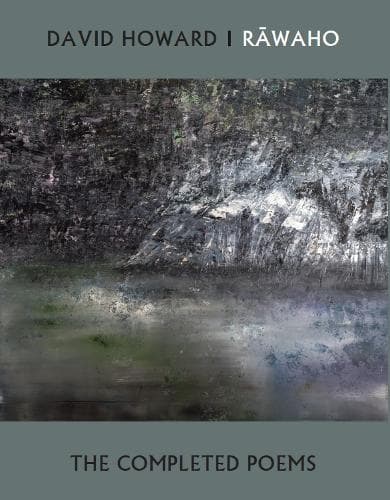Review: Rāwhao: The Completed Poems
Reviewed by Erica Stretton
David Howard’s latest substantial collection, Rāwhao: The Completed Poems, sees him pull together 150 poems wide-ranging in topic that span 1975 to today. This hefty book follows his 2011 collection entitled the in-complete poems, and on the cover flap he writes ‘this book has thousands of lines but in making it I am drawing one line. Another decade has gone, I’m done. This is the best I can do.’
Meticulous and lyrical, each dated poem represents a place in a continuum, as the author pieces together and makes sense of a literary life. In the substantial notes, we’re told of musical influence on the author’s writing – ‘I want that complex song from my poems’ – and this intention shows up time and time again – ‘Her Holden hung an endless left to my echo / She arrived with every song she’d ever wanted to remember’ (Talking Sideways, p73) and ‘Don’t trust the lyrics /I offer up, / they’ll betray you too.’ (Aotearoa: A romance, p41)
Rāwhao means outsider, foreigner – not from here. Throughout, this sits on two levels: a personal truth, and the understanding of Aotearoa’s past. In poem 91 (p145), For Reiko Kunimatsu (1980-2004), we hear ‘like the horizon, your smile / belongs to no body. ‘Oh, this habit of / always existing in places where I don’t / live’. Once again, we are being invited to make sense of our own personal place and space.
PRIVATE LIFE
Give sorrow words. The grief that does not speak
Whispers the o’erfraught heart and bids it break.
— Shakespeare: MACBETH, Act 4, Scene 3
Bury your grief with words; tender
flesh to earth, earth to sky
so your daughter will no longer cry
when her father goes on a bender.
Words are the only way to go
home. They fill the gutters,
shake the notary’s dusty shutters
once too often. They will lay you low.
[mid 2000]
Reviewed by Erica Stretton
